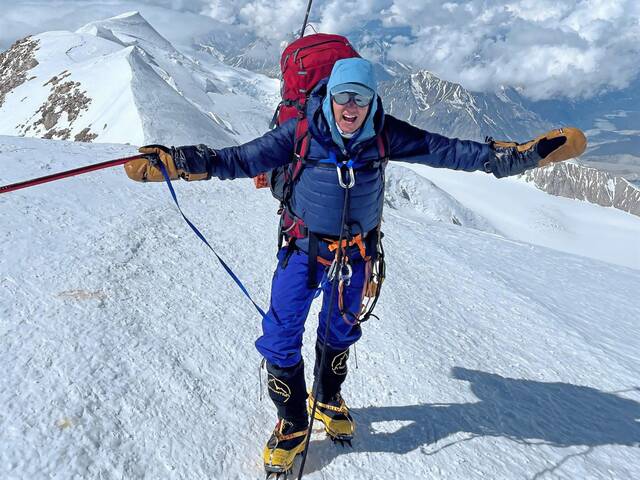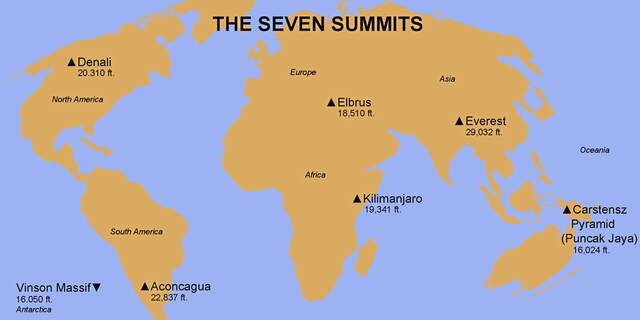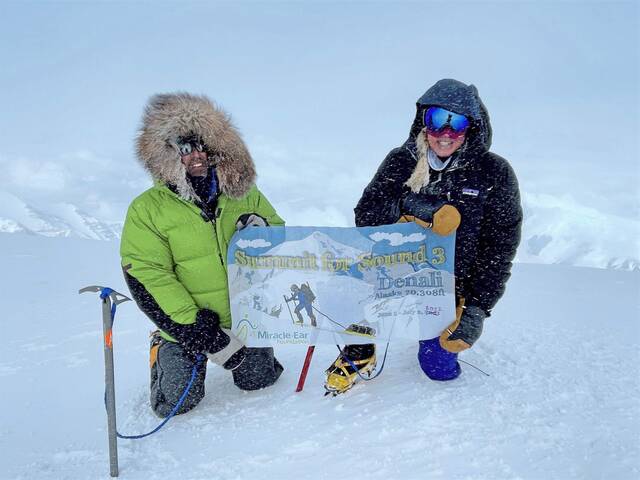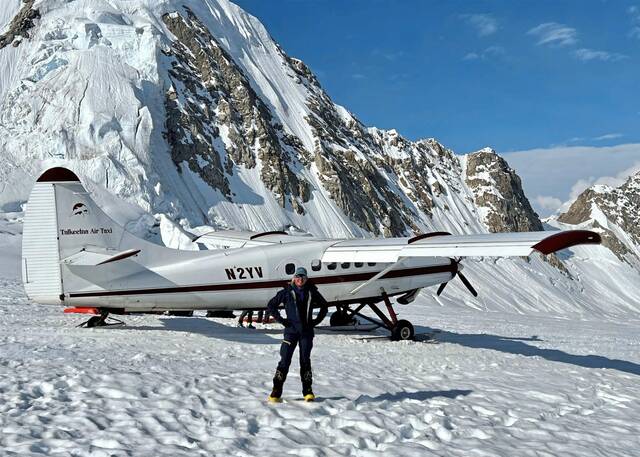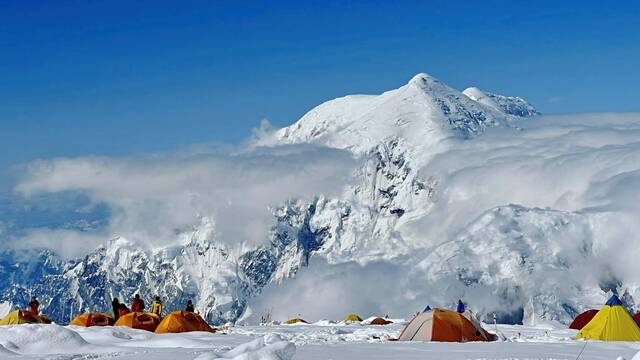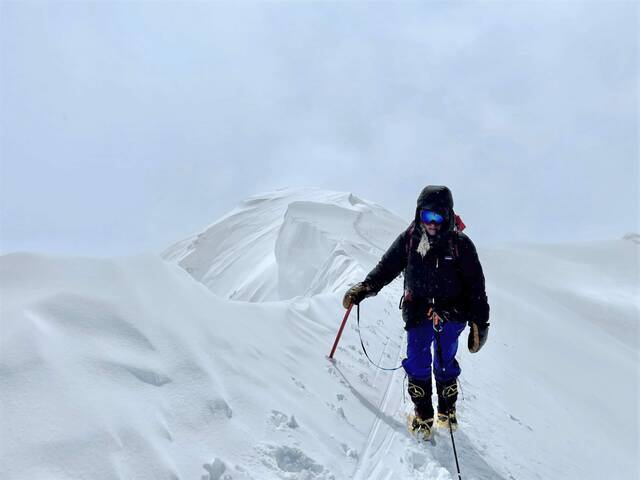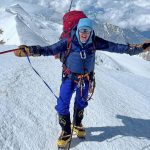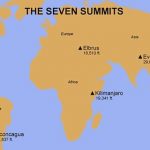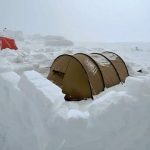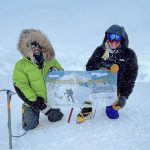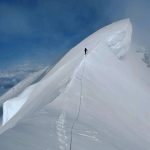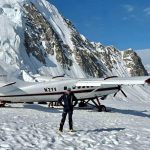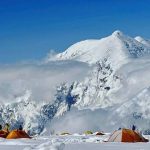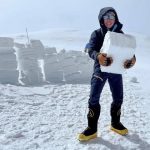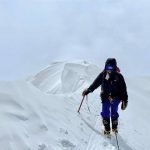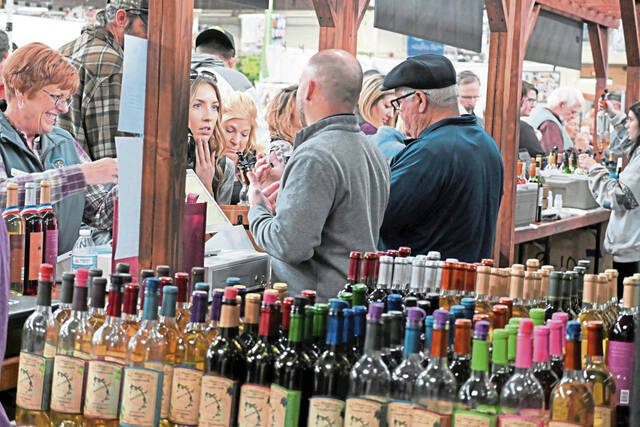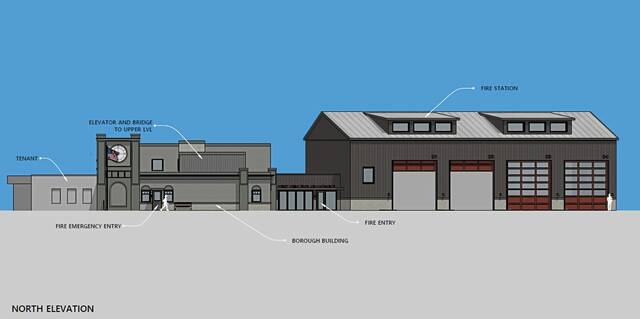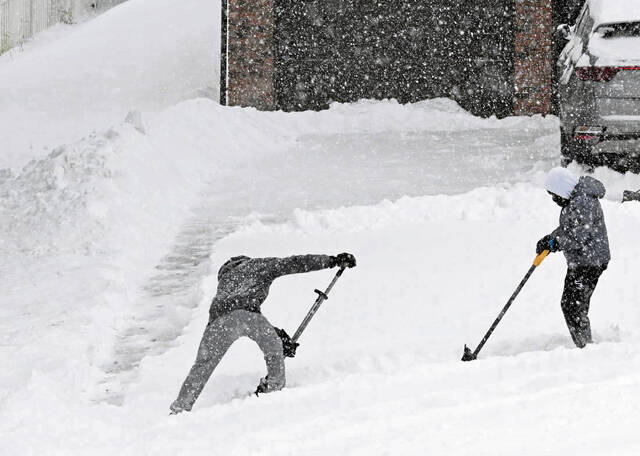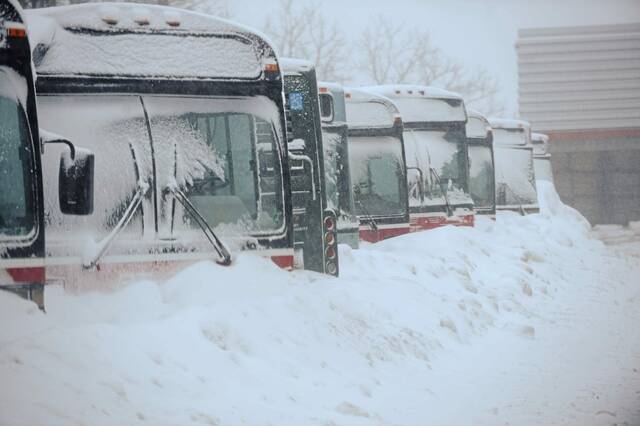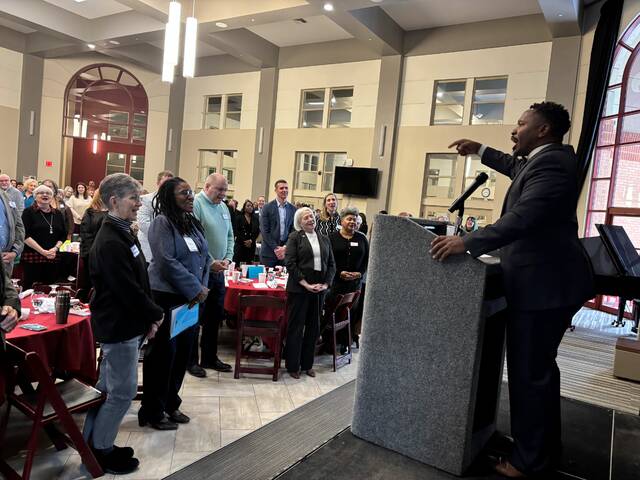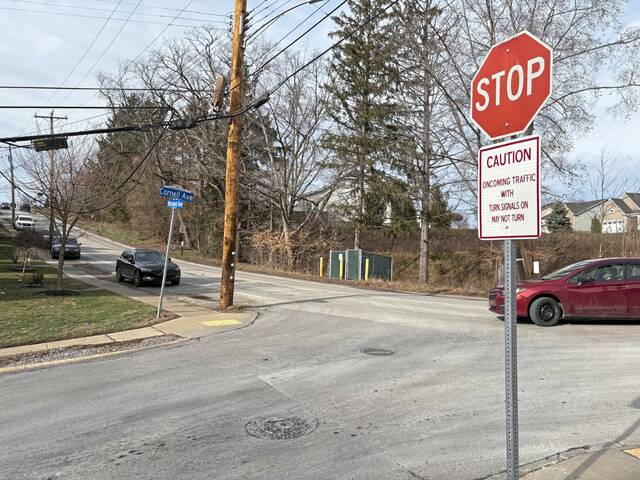Scaling North America’s tallest peak is difficult enough without temporarily losing a vital means of communication.
“You’re on this rope, and you can’t talk to anybody because you have to be separated on the rope,” Julie Beall-McKelvey said. “In case one of you falls, you can’t be right next to each other. And you can’t have music or anything, so it’s just you and your mind.”
During her mid-July excursion to reach the summit of Alaska’s Denali, 20,310 feet above sea level, her mind reflected on how the adverse conditions basically nullified her auditory capabilities.
“There were numerous times where I thought about what I’m doing and how many people are being helped because of it,” she said. “This is suffering that I’m choosing to do and impose on myself. If people can’t hear, you don’t choose that.”
As president and chief executive officer of Hearing Instruments Inc. — a Miracle-Ear Inc. franchise with 35 Pennsylvania offices, including locations in Monroeville, Bethel Park, Brentwood, Hempfield, Lower Burrell, North Huntingdon and Ross — she has a substantial history on behalf of the hearing-impaired.
In fact, her father, John Beall, started the first franchise of Minnesota-based Miracle-Ear. And he started his daughter’s upwardly mobile journeys, so to speak, by bringing Julie along on his climb of Japan’s highest mountain.
By ascending Denali, she has stood atop five of the mountains that constitute the Seven Summits, the highest points on each continent. Her purpose is to raise money on behalf of the Miracle-Ear Foundation’s Gift of Sound program, which meets the needs of people who otherwise would not be able to afford hearing-health solutions.
So far, pledges for her “Summit for Sound” climbs have generated $150,000.
“That’s hundreds of families that will get free hearing aids, just in Pennsylvania,” said Beall-McKelvey, who has a home in suburban Harrisburg.
Five down, two to go
Having scaled Mt. Fuji’s 12,389.2 feet, she decided to take on the Seven Summits. Along with Denali are Aconcagua in South America, Elbrus in Europe, Kilimanjaro in Africa, Vinson Massif in Antarctica, Carstensz Pyramid in Oceania, and, of course, Everest in Asia.
Beall-McKelvey has the latter pair to go, starting with a three-day trek to Indonesia for the Pyramid, also known as Puncak Jaya.
“That one has been booked. I leave Oct. 17,” she said. “Once I get there, it’s only like a two-day climb. It’s technical. It’s rough climbing, but it’s not this long thing. I’m only going to be in a tent one night.”
By contrast, scaling the 29,032-foot-high Mt. Everest, which straddles the China-Nepal border, involves a major time commitment.
“It’s a two-month expedition, which is a super-long time to be away in those elements,” Beall-McKelvey said, and because of the unrivaled altitude, “You’re on oxygen, so that’s huge. I’ve never climbed with an oxygen mask and tank on my back, so I don’t even know what that feels like.
“But I’ll have Sherpa there. They carry all the stuff. They set up the tent. They cook the food, which is the way I prefer to do this whole thing! I don’t know who wouldn’t prefer it that way.”
By another contrast, conquering Denali — and Vinson, which she did at the end of 2021 into the start of this year — involves carrying supplies in a massive backpack, plus hauling a sled.
Last summer actually marked Beall-McKelvey’s first attempt at reaching the top of North America, when she traveled to Alaska after hurting her foot while training in the Appalachians near her Harrisburg home.
“I got almost up to Camp 3,” at an elevation of 14,200 feet, “and that foot wasn’t cooperating. So I had to turn around, and then came home and found that it was broken,” she said.
Start anew for ’22
This time around, the main guide she selected for the excursion had to be evacuated off Denali because of a back problem. Another mountaineer, who has coached her for 15 years, subsequently offered to fly to her destination.
“He lands, and he tests positive for covid,” Beall-McKelvey said. “So now I’m in Alaska with no guide, and the thing almost got derailed.”
Fortunately, the friendly folks at Alaska Mountaineering School in Talkeetna, population 1,055, stepped in to make her climb possible.
“I went with just two guides, so that we could move based on how I was doing, which turned out to be a really good thing,” she said. “We ended up summiting on Day Nine, and normally you don’t summit until at least six or seven days after that.”
Above Camp 3, she had the opportunity to witness “this ridge that I have seen pictures of and dreamt about for the past two years, how beautiful it is.”
“It’s beautiful, but it’s terrifying,” Beall-McKelvey said. “You’re attached to the mountain with a rope, and you’re also attached on a different rope to the two guides.”
At one point on the ridge, the navigable path narrows to only about two feet wide, with drop-offs on either side of thousands of feet. There, her group encountered a descending team of climbers who didn’t seem to understand mountain etiquette of allowing those going upward to proceed.
“The whole thing probably only lasted five minutes, but it felt like an hour. And it was really the first time that it was like, this is really dangerous,” she said about her thought process. “So many things could go wrong now.”
Upward and onward
But everyone made it safely in her or his respective direction, and the next stop was Denali High Camp, elevation 17,200 feet, where the nightly weather forecast called for less-than-optimal conditions at the summit the following day.
“People were talking about having to be stuck up there for a week and not being able to summit,” Beall-McKelvey said.
But the guides convinced her that they, indeed, could make the final 3,000 feet.
“It’s insanely hard,” she said. “It’s so steep. It’s so hard to breathe. You’re walking so slow. It’s so cold. And I got altitude sickness at the summit.”
Their time at the top lasted only a few minutes, but she was able to raise the “Summit for Sound” banner at the highest point of yet another continent.
“They could tell I was not doing great, so it took us a really long time to get down. They had to give me dexamethasone, which is a high-altitude drug. They were worried about me having cerebral edema,” Beall-McKelvey said.
“The answer to all of those symptoms is, get out of the altitude. Get down, and everything goes away. Which is what happened, but it was a 16-hour total round trip, which was a good bit longer than it should have been. But I just couldn’t walk any faster than I was walking. I was in a lot of pain.”
After returning to Pennsylvania, she had this to say about vanquishing Denali:
“Hands down, it’s the hardest thing I’ve ever done.”
For more information about the Miracle-Ear Foundation, visit www.miracle-ear.com/miracle-ear-foundation.


